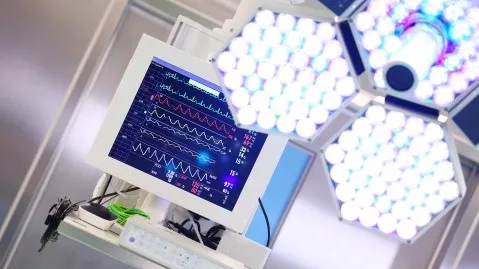
China’s pivot to domestic medical devices market could discourage MNCs: report
Some local ministries banned public institutions from procuring imported medical equipment.
China’s recent focus on strengthening its domestic medical devices industry may create a trust deficit that will discourage multinational medical device companies to invest in China, according to a report from GlobalData.
Some local ministries and commissions in China, one of the largest medical device manufacturing hubs globally, have issued a circular prohibiting all public medical institutions from procuring imported medical equipment without approval, the report noted.
Currently, foreign multinationals dominate the Chinese medical devices market and over 70% of the high-end medical devices are imported. The new policy will help domestic Chinese medical device manufacturers to gain market share, GlobalData said.
READ MORE: China’s medical devices sales seen to exceed $42b in 2022
“The new policy will encourage domestic companies but may have a negative impact on the foreign companies, which may like to shift their manufacturing facilities to other APAC countries,” GlobalData’s medical devices analyst Rohit Anand said.
In particular, these policies may benefit India and we may see an increased foreign direct investment in the field of medical device manufacturing, he said.
GlobalData noted that the Chinese government is pushing for foreign medical device manufacturers to transfer technologies and their assembly processes to China. It also wants foreign companies to manufacture, design, and procure critical components domestically.
However, the report warned that domestic medical device companies have weak innovation capabilities and low research and development investment and hence they will find it difficult to compete with the established foreign companies.
Anand said some foreign companies may fear losing high-end technologies, and few may start to view China as a less attractive destination to manufacture and sell medical devices, whereas some others will be forced to operate as a separate Chinese entity with squeezed profits.
“It may not be possible for medical institutions to completely replace all high-end imported medical devices with domestically manufactured devices over the next few years and China will continue to be an import-dependent country,” he said.
GlobalData projected the Chinese medical devices market to grow at a compound annual growth rate of around 6% between 2022 and 2030. An increase in the number of hospitals and labs and an ageing population are expected to drive the medical devices market in China.



















 Advertise
Advertise







